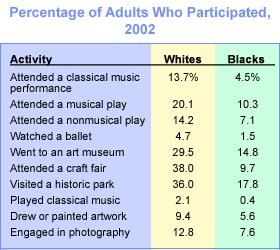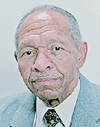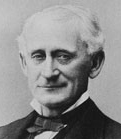In an Election Year, Arnold Schwarzenegger Has Reinvented Himself as the Education Governor
.gif) Last year, California governor Arnold Schwarzenegger withheld $2 billion that had been earmarked for the state's schools in an effort to shore up California's budget deficit. Then the governor called for a special election in November 2005 to consider amendments to the state constitution, which would have provided a more restricted formula for educational funding. All of Schwarzenegger's proposals were rejected by California voters. Last year, California governor Arnold Schwarzenegger withheld $2 billion that had been earmarked for the state's schools in an effort to shore up California's budget deficit. Then the governor called for a special election in November 2005 to consider amendments to the state constitution, which would have provided a more restricted formula for educational funding. All of Schwarzenegger's proposals were rejected by California voters.
Now it is an election year in California and Governor Schwarzenegger is up for reelection. After the resounding defeat of his educational reform measures last November, Schwarzenegger has transformed himself into something of a Father Christmas for education. His latest budget calls for an 8 percent overall increase in state funding for education. He is proposing a bond package that will build thousands of new schools and add 40,000 classrooms statewide.
Of particular interest to readers of JBHE, Schwarzenegger has proposed to cancel a scheduled 8 percent fee increase for students in the University of California and California State University systems. The cancellation of the fee increase could result in savings of up to $500 per student.
Also, Schwarzenegger has proposed an increase in the Cal Grant program where low-income students enrolled at private colleges and universities would see their maximum award rise from $8,322 to $9,708.

Differences in Leisure Activities of College-Educated Blacks and Whites
Nearly 30 percent of all white adults in the United States over the age of 25 hold a four-year college degree. For black adults, about 17.5 percent are college educated.
A recent survey by the National Endowment for the Arts offers participation rates for a wide range of leisure activities that are generally associated with people who have a high level of education. In all cases, whites are more likely to participate than blacks, but sometimes the differences in participation rates are far greater than the college completion rate disparities noted above. In some if not all cases, whites’ higher average income may be a factor in their higher participation rates in the activities named.


  |
“We need somebody to put rat poisoning into Justice John Paul Stevens’ creme brulee.”
— right-wing author and commentator Anne Coulter, speaking at Philander Smith College, a historically black educational institution in Little Rock, Arkansas, on January 26, 2006, expressing her wish that the Supreme Court have more conservative justices
|
Sharp Rise in Black Early Applicants to Rice University
 Traditionally, black students have been hesitant to take advantage of early admissions programs at the nation’s highest-ranked colleges and universities. A major reason for this reluctance is the fact that these early admissions programs usually require all accepted applicants to actually enroll. African-American college students typically need financial aid. The requirement that accepted early applicants enroll, therefore, denies African-American students the opportunity to bargain with several competing universities over financial aid awards. Traditionally, black students have been hesitant to take advantage of early admissions programs at the nation’s highest-ranked colleges and universities. A major reason for this reluctance is the fact that these early admissions programs usually require all accepted applicants to actually enroll. African-American college students typically need financial aid. The requirement that accepted early applicants enroll, therefore, denies African-American students the opportunity to bargain with several competing universities over financial aid awards.
Rice University has what it calls an interim decision application option. Under this program, students apply by December and are informed of the university's decision by early February. The interim admissions application is not binding, which means that students who apply under the program are not required to enroll at Rice if they are accepted.
This year interim decision applications at Rice were up 8 percent from a year ago. But interim decision applications from blacks were up a whopping 38 percent. The admissions office at Rice reports that it conducted an extensive telephone marketing campaign directed at minority students to inform them of the nonbinding interim decision option at Rice.
Blacks made up nearly 6 percent of the interim decision applicants at Rice this year, up from 4.5 percent a year ago. In contrast, only five of the 175 students admitted to Rice this year under its binding early applicant program are African Americans.

Medical University of Ohio

Chair, Department of Medical Microbiology and Immunology
The College of Medicine at the Medical University of Ohio invites applications and nominations for the position of Professor and Chair of the Department of Medical Microbiology and Immunology. We seek an outstanding scientist with a distinguished record of extramurally-funded research, demonstrated leadership ability, and a strong commitment to medical and graduate education. The Medical University of Ohio is a state supported institution with an annual budget of over 300 million dollars, situated on an attractive 450-acre campus in the port city of Toledo: http://www.toledo.com. In addition to the Colleges of Medicine, Nursing, Health Sciences, and Graduate Studies, the University operates its own teaching hospital and is engaged in active collaborations with the nearby University of Toledo.
The successful candidate will lead the growth of a dynamic department that currently has 10 full-time faculty members. Research interests represented within the department include molecular mechanisms of microbial pathogenesis, signaling mechanisms in inflammation and host immune response, macrophage response to pathogens, and replication and evolution of RNA viruses. The faculty currently generates approximately 2.4 million dollars in extramural funding. The department occupies spacious well-equipped laboratories, including a modern BSL-3 facility, in close proximity to proteomics and genomics core laboratories, a microscopy/imaging core, and AAALAC-accredited animal facilities. The educational missions of the department include teaching microbiology and immunology to medical students, and mentoring graduate students recruited into two interdepartmental Ph.D. programs. Additional information about the department is available by clicking here. The new Chair will be provided with resources to foster the continued growth of the department, including the addition of new tenure-track faculty positions. Immunology has been targeted as an area for strategic emphasis. There will be a strong interest in candidates with the vision and motivation both to complement the existing strengths of the department and to stimulate new research efforts with translational implications for transplant immunology, cancer immunotherapy, inflammatory diseases or host response to infection.
Applications should include: (1) a cover letter summarizing research, educational and administrative background, (2) a curriculum vitae, and (3) names and contact information for at least four references. Materials may be sent via regular mail or e-mail (PDF format) to:
William A. Maltese, Ph.D.
Chair, Microbiology Search Committee
c/o Shirley Joseph, COM Dean’s Office
Medical University of Ohio
3000 Arlington Avenue
Toledo, OH 43614
sjoseph@meduohio.edu
The Medical University of Ohio is committed to diversity and equal opportunity. Applications from women and minority candidates are strongly encouraged.
FAMU Takes Its Medicine
Last year the National Collegiate Athletic Association announced that an investigation had found more than 200 violations in the athletics programs at Florida A&M University, the historically black educational institution in Tallahassee. Included among the allegations was the charge that 67 athletes were permitted to compete in intercollegiate athletics who were not eligible to do so.
Since the investigation was completed the university has been waiting for the NCAA to assess the penalties for the infractions. Last week the shoe fell and it came down hard. The NCAA placed the university on probation for four years and stripped the university of 30 athletic scholarships across its 15 intercollegiate sports programs.

The Man Mississippi Sent to Prison for Attempting to Racially Integrate the State’s System of Higher Education

Clyde Kennard
He was falsely charged with a crime after he sought to integrate the University of Southern Mississippi
The Mississippi State Senate recently passed a resolution honoring Clyde Kennard, the black student who first sought to break the color barrier at the University of Southern Mississippi. Kennard, a Korean War veteran, was a junior at the University of Chicago in 1960 when he applied to transfer to the University of Southern Mississippi. His application was denied citing irregularities in his paperwork. When Kennard met with university officials in an attempt to correct the irregularities, they questioned whether he had the moral character to enter the university. Soon after he left campus he was arrested on charges of reckless driving and possession of unlawful liquor. He was subsequently charged with stealing $25 worth of chicken feed. Kennard was convicted on this charge by an all-white jury and sentenced to seven years at the notorious Parchman prison farm. While imprisoned he contracted intestinal cancer. He was released from prison just prior to his death in 1963.
Recently, the man who was the only witness of substance at Kennard’s trial recanted previous testimony and declared that Kennard had been framed, undoubtedly so he would be forced to give up his attempt to racially integrate the University of Southern Mississippi.
The recent Senate resolution stopped short of stating that Kennard was innocent of all charges. Mississippi state attorneys recommended that such language be stripped from the resolution.

  |
12,226 Number of African-American homicide victims in 1991.
6,912 Number of African-American homicide victims in 2003.
source: Federal Bureau of Investigation
|
In Memoriam
Fayard Nicholas (1914-2006)
 The Nicholas Brothers
The Nicholas Brothers
Harold on the left and Fayard on the right
Fayard Nicholas, who with his younger brother Harold performed some of the most skillful dance numbers ever seen in American film or on the stage, died from pneumonia late last month at his home in Los Angeles. He was 91 years old.
Born to parents who were Vaudeville musicians, the Nicholas Brothers learned to tap-dance at an early age. By the time Fayard was 18, he and his brother, who was then 11 years old, were the featured act at the Cotton Club in Harlem. Howard died in 2000.
After their discovery at the Cotton Club by Samuel Goldwyn in 1934, the Nicholas Brothers went to Hollywood and appeared in many feature films. They reached their zenith in the staircase routine for the film Stormy Weather. Fred Astaire called that Jumpin’ Jive routine the greatest musical number he had ever seen.
Obedient to the racial stereotypes of the time, the filmed scenes in which the Nicholas Brothers performed were designed so that they could be edited out without disrupting the flow of the film when the moving picture was shown to southern audiences. It was not until their last movie together in 1948, The Pirate with Gene Kelly, were the Nicholas Brothers permitted to dance onscreen with white actors.
Fayard Nicholas continued to dance until this past November when he suffered a stroke.
Roland T. Smoot (1927-2006)
 Roland T. Smoot, the first black faculty member at the Johns Hopkins School of Medicine, died late last month while on the way to the hospital to be fitted with a defibrillator to regulate his heartbeat. Professor Smoot, who had a date to play tennis later that day, was 78 years old. Roland T. Smoot, the first black faculty member at the Johns Hopkins School of Medicine, died late last month while on the way to the hospital to be fitted with a defibrillator to regulate his heartbeat. Professor Smoot, who had a date to play tennis later that day, was 78 years old.
Smoot was a native of Washington, D.C. His father was a postal worker and his mother was a household maid. Smoot was a 1944 graduate of Dunbar High School. After serving in the Army at the end of World War II, Smoot returned to Washington and used funds from the GI Bill to complete a bachelor’s degree and medical training at Howard University.
Early in his career, Dr. Smoot worked in hospitals in North Carolina and Alabama. In 1963 he was named chief of medicine at Provident Hospital in Baltimore. Three years later he became the first black physician to be granted admitting privileges at Johns Hopkins’ medical center. Smoot was named to the Johns Hopkins faculty in 1974 and served as assistant dean of student affairs from 1978 to 2004.
After leaving the dean’s office Smoot remained active in laboratory research on breast cancer. Smoot had four sons. One son, Duane T. Smoot, is chair of the department of medicine at Howard University.
Ida Mae Holland (1944-2006)
 Ida Mae Holland, playwright, author, civil rights activist, and university professor, died late last month at a nursing home in Los Angeles. Holland suffered from ataxia, a genetic disorder that degenerates brain functions which control muscular movements. She was 61 years old. Ida Mae Holland, playwright, author, civil rights activist, and university professor, died late last month at a nursing home in Los Angeles. Holland suffered from ataxia, a genetic disorder that degenerates brain functions which control muscular movements. She was 61 years old.
Holland was born in Greenwood, Mississippi, to an unwed mother who picked cotton for a living and worked as a domestic servant for a white family. At age 11 Young Ida Mae was raped by a white man who owned the home where her mother worked.
As a teenager, Holland became a street-walking prostitute. She charged black men $5 and white men $10. One day she ventured into the offices of the Student Nonviolent Coordinating Committee and instantly became interested in its cause. She became a foot soldier in the civil rights movement and was arrested 13 times for participating in civil rights protests.
One day a bomb was thrown into her house. Her mother was trapped inside and died. Holland was burdened with guilt and decided to leave the South. She moved north and in 1965 she enrolled at the University of Minnesota. She married and began to write. Her play, From the Mississippi Delta, inspired by her civil rights work in the South, was nominated for a Pulitzer Prize.
It took 13 years for Holland to win her bachelor’s degree from the University of Minnesota. In 1985 she earned a doctorate in American studies from the same institution. Holland then joined the faculty at the State University of New York at Buffalo and continued to teach until 2003 when her ataxia affliction made it difficult for her to speak clearly.

|
New Jersey School District Pulls Book Off Black History Month Reading List Because It Contains a Racial Slur
 The school board in Absecon, New Jersey, has removed a book from its Black History Month reading list because it contains the word “nigger.” The book, The Well, is the story of a black family in Mississippi in the early twentieth century. The family has the only working well in the small town and they share the water with neighbors. One neighboring family is white, and in the book’s dialogue this white family refers to blacks as niggers. The school board in Absecon, New Jersey, has removed a book from its Black History Month reading list because it contains the word “nigger.” The book, The Well, is the story of a black family in Mississippi in the early twentieth century. The family has the only working well in the small town and they share the water with neighbors. One neighboring family is white, and in the book’s dialogue this white family refers to blacks as niggers.
The book was on a reading list for fourth-grade students. Many parents believe that white students at this age would not comprehend the offensiveness of the term and would use it to tease or insult their black classmates.

The Patrick Swygert Book Club
 H. Patrick Swygert
H. Patrick Swygert
Oprah Winfrey's book club has had a tremendous impact on the publishing world. Books recommended by Oprah invariably see a dramatic increase in sales and her efforts have produced an increase in reading among both blacks and whites.
Although H. Patrick Swygert, president of Howard University, doesn’t have the audience of Oprah Winfrey, he is contributing mightily to increase reading among African Americans. Dr. Swygert has sent deans and administrators at Howard University a list of books he deems important for people of African descent. President Swygert intentionally omitted from his list a number of classic works such as The Souls of Black Folk and The Autobiography of Malcolm X because he assumes everyone has already read these works.
Here is the list of books recommended by President Swygert:
- The Afrocentric Idea, by Molefi K. Asante
- A Howard Reader: An Intellectual Quilt of the African-American Experience, edited by Paul E. Logan
- Mumbo Jumbo, a novel by Ishmael Reed
- The Dramatic Vision of August Wilson, by Sandra G. Shannon
- Among the Believers: An Islamic Journey, by V.S. Naipaul
- W.E.B. Du Bois: The Fight for Equality and the American Century, 1919-1963, by David Levering Lewis
- Succeeding Against the Odds, by John H. Johnson with Lerone Bennett Jr.
- Vernon Can Read! A Memoir, by Vernon E. Jordan Jr.
- How to Succeed in Business Without Being White, by Earl G. Graves
- No Boundaries: A Cancer Surgeon’s Odyssey, by LaSalle D. Leffall Jr.
"This is just one person's view of what's important to read," said President Swygert. "The important thing is we are reading."

Tuck Business School at Dartmouth Inducted Into the Minority Business Hall of Fame
 Amos Tuck
Amos Tuck
The Amos Tuck School of Business at Dartmouth College recently became the first academic institution inducted into the Minority Business Hall of Fame. The business school was honored for its efforts to increase minority access to leadership positions in corporate America.
Special recognition was given to the business school's Minority Business Executive Program. Since 1980 this summer session has offered executive-level training to minority business owners. More than 3,000 students have completed the program over the past quarter-century.
Amos Tuck was a Dartmouth graduate, congressman, abolitionist, and one of the founders of the Republican Party. His son Edward, an international financier who made a fortune in banking and railroads, provided the money to establish the business school at Dartmouth which he named in honor of his father.

He’s Back! Trent Lott Seeks Reelection and May Try to Regain a Leadership Post
 Senator Trent Lott
Senator Trent Lott
As Senate majority leader his programs were segregationist if not racist
It had been widely believed that Mississippi GOP Senator Trent Lott would retire at the end of his term next January. Many commentators believed that Lott had lost the will to continue in the Senate after he had been forced out of his position as majority leader. Lott gave up the post to Bill Frist in 2002 because of comments he had made at South Carolina Senator Strom Thurmond's 100th birthday celebration. Lott mused that the country would have been better off if the archsegregationist Thurmond had been elected president of the United States in 1948.
But Lott has surprised the pundits and decided to run for reelection. Undoubtedly, he will win another term.
The big question is whether Lott will attempt to rejoin the Senate leadership. Senate majority leader Bill Frist is not seeking reelection this fall. The third-ranking senator in the GOP leadership, Rick Santorum of Pennsylvania, is trailing in the polls by a large margin in his reelection bid against Bob Casey, son of a popular former governor. Mitch McConnell of Kentucky is considered the frontrunner for majority leader. But Lott may mount a challenge or bide his time and seek the No. 2 position.
In all events, a return of Trent Lott to a powerful leadership position in the GOP is bad news for blacks. Consider the following:
- In 1989 Lott voted to eliminate federal funding for the Martin Luther King Jr. Holiday Commission.
- In 1990 Lott voted against the passage of the Civil Rights Act of 1990.
- In 1991 Lott opposed the motor/voter legislation, which would have simplified voter registration for poor blacks in Mississippi and other states.
- Lott, in 1991, supported an amendment by North Carolina Senator Jesse Helms that called for prohibiting private employers from using affirmative action procedures for recruiting black workers.
- Lott, in 1992, voted against extending provisions in the Voting Rights Act of 1965 until 2007.
- Lott, in 1995, voted to eliminate funding for the Smithsonian's National African-American Museum.
- In 1998 Lott voted to eliminate a set-aside program for minority-owned businesses on federal construction projects.

Prestigious Location Chosen for the Site of the New National Museum of African American History
 Lonnie G. Bunch
Lonnie G. Bunch, director of the National Museum of African American History and Culture
For more than 20 years, black leaders in the U.S. Congress have labored to establish the National Museum of African American History and Culture. Finally, three years ago, President Bush signed legislation authorizing the selection of a site for the museum, which will be operated by the Smithsonian Institution.
Last week the Smithsonian board of regents, headed by Chief Justice of the United States John Roberts, approved a site on The Mall, across the street from the Washington Monument. Black leaders had warned that any site not on The Mall would be considered insulting to African Americans. Some black members of the advisory committee, which selected the site, said they would resign if a site on The Mall were not selected. Three members of the advisory committee have ties to the academic world: H. Patrick Swygert, president of Howard University, Michael L. Lomax, CEO of the United Negro College Fund, and Homer A. Neal, Samuel A. Goudsmit Professor of Physics at the University of Michigan.
The new, 350,000-square-foot museum will take 10 years to complete at an estimated cost of $500 million. Half of the cost will be paid by taxpayers and the remainder will be raised privately.

No Black Colleges Among the Institutions Feeding the Most Graduates to the Peace Corps
This past week the Peace Corps published its annual list of the colleges, universities, and graduate schools that are the organization’s main feeder institutions for volunteers. There are currently 104 graduates of the University of Wisconsin who are serving as Peace Corps volunteers, the most of any college or university in the nation. The University of Washington, the University of California at Berkeley, and the University of Colorado all have more than 80 graduates who are Peace Corps volunteers.
Since 1961 more than 3,200 graduates of Berkeley have gone on to work in the Peace Corps, the most of any college or university.
The Peace Corps also publishes a list of smaller colleges and universities that are the top feeder institutions for their size. The University of Virginia is the top feeder school for universities with between 5,000 and 15,000 undergraduates. For smaller colleges and universities with fewer than 5,000 undergraduate students, Dartmouth College leads in sending the most graduates to the Peace Corps.
There are no black colleges or universities among the top 25 Peace Corps feeder institutions at all three levels of institutional size.

Serious Blow to Higher Education in the District of Columbia
 William Lawrence Pollard, President, UDC
William Lawrence Pollard, President, UDC
Over the past decade the average tuition and fees at state-operated colleges and universities nationwide have increased by more than 50 percent. But at the University of the District of Columbia, fees had not increased even by one dollar. This is about to change.
Next fall, residents of the District will see tuition rise from $1,260 to $1,605 per semester. This is an increase of 27 percent. The next year, the tuition charges will increase to $1,885 per semester, an increase of nearly 50 percent in two years.
In making the announcement, President William Lawrence Pollard said, "Education is like anything else you buy. You get what you pay for."
More than 81 percent of the undergraduate students at the University of the District of Columbia are black. Undoubtedly, these large fee increases will be a financial hardship to many of them. It is likely that hundreds of black students will drop out or choose not to enroll in the first place because of the higher fees.

Bennett College to Receive Major Research Archive
For the past two years, the Greensboro Truth and Reconciliation Commission has been investigating the shooting of five people at an anti-Klan rally in Greensboro, North Carolina, in November 1979. The commission is scheduled to release its final report in April.
Now it has been announced that the thousands of documents, photographs, and video and audio tapes that were presented to the commission will be housed at the Carnegie Negro Library at Bennett College, the historically black women’s college in Greensboro. One of the people killed at the 1979 rally was a Bennett alumna who had served as president of the student body.

Honk If You Want to End Poverty
In a master’s thesis written at Portland State University, Kerri Sullivan, now a planner in the department of transportation in Washington State, presents evidence that car ownership is a key factor in moving out of poverty. Sullivan’s research found that car ownership increased the likelihood of employment by 80 percent. People with cars had average weekly wages that were $275 higher than people without cars. Research has shown that car ownership could alleviate 45 percent of the black-white employment gap.

Black College to Offer Degree Program in Emergency Management
The Raleigh, North Carolina, Fire Department was recently sued by a black firefighter who claimed he was denied a promotion because of his race. If the department wishes to make a concerted effort to increase racial diversity in its ranks, it won’t have far to go. This coming fall, Shaw University, the historically black educational institution in Raleigh, will begin offering a degree in public administration with a specialization in emergency management. Students enrolled in the program will take 10 courses in emergency management and be required to participate in a summer internship program.

Appointments
• Celesti Colds Fechter was appointed chair of the University Diversity Initiative at the New School University in New York City. Dr. Fechter is the assistant dean for academic affairs and a professor of psychology at the university.
• George Reid was named assistant dean for advancement at the Martin J. Whitman School of Management at Syracuse University. He was the senior director of leadership gifts at American University in Washington, D.C.

Grant
• North Carolina A&T State University, the historically black educational institution in Greensboro, has received a $1.2 million grant from the U.S. Agency for International Development. The grant will be used for a vegetable production research project with sites operating in Vietnam, Indonesia, and the Philippines.

|



